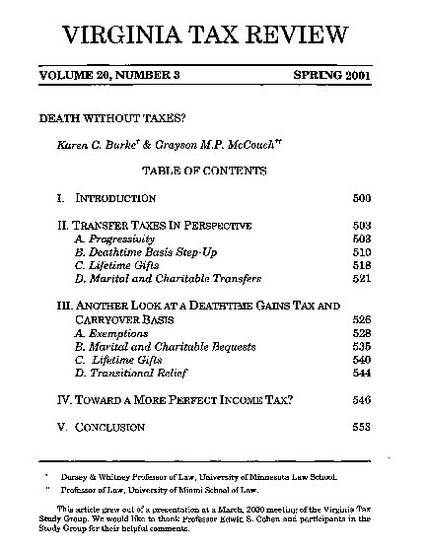
In recent years the role of the estate, gift and generation-skipping transfer taxes within the federal tax system has become increasingly controversial. The future of the transfer taxes remains unsettled, despite recently enacted legislation that moves in the direction of repeal with a delayed effective date. This paper looks at transfer tax repeal in terms of its repercussions on the rest of the tax system, with special emphasis on the income tax treatment of property transferred by gift or bequest. Repeal of the transfer taxes would reduce the progressivity of the overall tax system, exacerbate existing inequities with respect to transfers of appreciated property, and sharpen the need for income tax reform. In response, Congress could impose a deathtime gains tax, adopt a carryover basis regime, or conceivably tax gifts and bequests as income to the recipient. Each of these alternatives raises significant issues of structure and implementation which deserve closer scrutiny. In all likelihood, Congress will reconsider the issue of transfer tax repeal during the next ten years. Instead of focusing narrowly on the shortcomings of the existing transfer taxes, the debate should include careful weighing of the potential advantages and disadvantages of the available alternatives.
